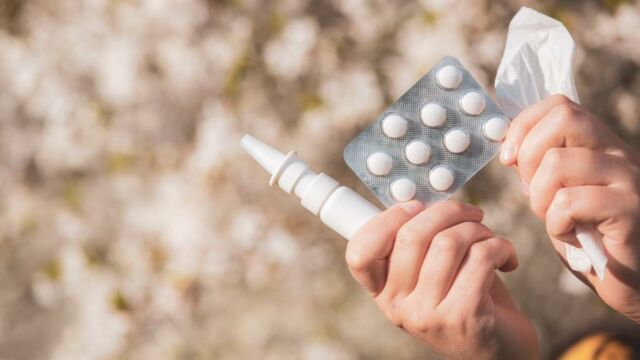UK chemists such as Boots and Superdrug have run out of some hay fever medicines. Manufacturer GlaxoSmithKline, which makes Piriton and Piriteze tablets, has blamed the shortage on low stocks of the active ingredient, chlorphenamine maleate.
Discover our latest podcast
Is the shortage due to the war in Ukraine or the lockdown in China?
According to Mail Online:
The chlorphenamine shortage has been blamed on logistical problems, as well as disruption caused by the war in Ukraine. Also, many suppliers are in China, where 345 million people are living under lockdowns, including in Shanghai — the world’s largest port.
However, Claire Anderson from the Royal Pharmaceutical Society said:
Medicines shortages are not a new problem, and is something pharmacists and pharmacy teams have to manage and deal with on a daily basis, and have done for a long time. This can be for a multitude of reasons, including manufacturing issues, global demand or disruption with the supply chain.
People shouldn't panic as only four of Boots’ 90 hay fever relief products have been affected by the shortage.

Substitutes for hay fever medicines on short supply
There are many alternatives to medicines containing chlorphenamine maleates, such as those containing active ingredients loratadine or cetirizine, such as Allacan, and fexofenadine, such as Allevia.
Anderson said:
Other medication using cetirizine hydrochloride or loratadine is still available widely in pharmacies across the country, and fexofenadine is also now available on general sale at pharmacies this year for the first time, so patients actually have more options than ever to treat their hay fever symptoms.
Benadryl and Piriteze, an allergy syrup which is given to children, are other available options. Other alternatives are nasal sprays and eye drops that can relieve symptoms such as itchy eyes and runny nose.
The NHS also suggests:
- Put Vaseline around the nostrils to trap pollen
- Wear wraparound sunglasses to prevent pollen from reaching the eyes
- Shower and change clothes after being outside to wash pollen off
- Stay indoors whenever possible
- Keep windows and doors shut as much as possible
- Vacuum regularly and dust with a damp cloth
- Buy a pollen filter for car air vents and a vacuum cleaner with a HEPA filter
Read more:
⋙ This one difference can help determine if you have COVID or hay fever
⋙ Sunflower oil: Here's what you can substitute it with as shortage hits















